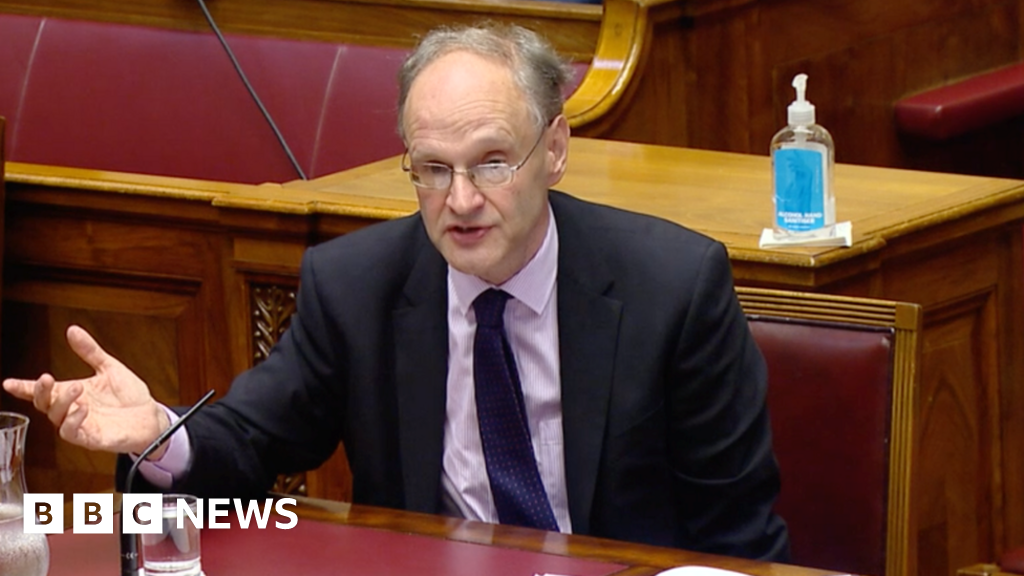
Questions have been raised over the over the transparency of the algorithm used to calculate A-level results at Stormont's Education Committee.
More than a third of estimated grades allocated by teachers to NI students were lowered in the final results.
The SDLP's Daniel McCrossan told Peter Weir children had been "failed by the system".
Mr Weir resisted calls to scrap the results, telling MLAs the method was the "least worst solution".
After the exams were cancelled due to the coronavirus pandemic, examination body CCEA asked teachers to give a predicted grade for their pupils and then rank them in order within their class.
It then used other data to standardise the results. For A-levels, the model used pupils' AS-level results and re-sit data.
Head teachers, teaching unions, students, managing authorities, and the education and training inspectorate were all consulted in the development of the final grade calculation process, the minister said.
'A debacle'
Mr McCrossan asked the minister "to produce your homework to be marked" on the algorithm used to calculate the A-level results..
"Dreams have been shattered, confidence battered and families are very worried and concerned for their wellbeing and their health, and mental health.
"I have seen teachers in tears, in shock, they are numb, angry, frustrated and feel patronised," he added and said principals have been trying to explain the situation to parents and the public.
Mr Weir said if teacher predictions were used without standardisation, the results would not have "any level of credibility" because the results would be so much higher than those achieved in previous years.
The minister acknowledged that the system for calculating A-level results "did not work for everyone", but said that "everyone recognised there was no perfect solution".
He said there was no way of creating a perfect replacement for sitting the exams.
In the absence of actually sitting exams, Mr Weir said there was a desire to create a "least worst solution" and said "no one suggested a different workable process for delivering fair and robust grades in the space, or time, that was available".
Mr Weir highlighted that a fast-tracked appeals process has been established for those students who believe they have been treated unfairly.
On Friday morning, Justin Edwards, chief executive of CCEA, said they had received 100 appeals in the last 24 hours with regard to exam results.
Mr Edwards said the appeals process is in place to help students who may feel their results are not what they should have received.
"These are provisional results and through appeals these results rise every year," Mr Edwards told BBC Radio Foyle.
"We anticipate appeals and we have an open system for appeals through schools and colleges open this morning and we would encourage students to come forward and we would look at their cases.
"As of last night we had 100 appeals, that would be lower than this time last year but we are certain that schools are working with students to see whether they want to appeal."
About 28,000 pupils across Northern Ireland received their results on Thursday morning.
While the proportion of A* to A A-level grades rose by 2.3%, 37% of estimated grades were lowered; 5.3% were raised.
This year's results were estimated after exams were cancelled due to the Covid-19 pandemic.
Last year, 45.8% of estimated grades provided by schools matched the student's final results.
This year, 58% of A-level and AS results matched the estimated grades.
You can watch the Stormont Education Committee here.
"results" - Google News
August 14, 2020 at 09:54AM
https://ift.tt/2XYyQyi
A-levels: Minister must act 'decisively' on exam results - BBC News
"results" - Google News
https://ift.tt/2SvRPxx
https://ift.tt/2Wp5bNh
Bagikan Berita Ini















0 Response to "A-levels: Minister must act 'decisively' on exam results - BBC News"
Post a Comment